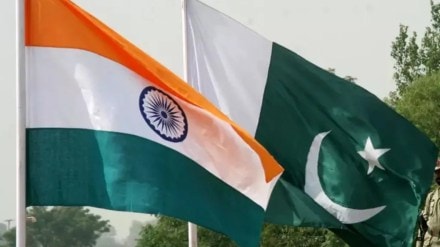India and Pakistan have agreed to a full and immediate ceasefire following days of escalating cross-border violence and heightened tensions after the deadly terror attack in Pahalgam.
“After a long night of talks mediated by the United States, I am pleased to announce that India and Pakistan have agreed to a FULL AND IMMEDIATE CEASEFIRE. Congratulations to both Countries on using Common Sense and Great Intelligence,” US President Donald Trump posted on his Truth Social platform.
His announcement was echoed by US Secretary of State Marco Rubio, who played a pivotal role in the talks. “Over the past 48 hours, VP Vance and I engaged with senior Indian and Pakistani officials, including Prime Ministers Narendra Modi and Shehbaz Sharif, External Affairs Minister Subrahmanyam Jaishankar, Chief of Army Staff Asim Munir, and National Security Advisors Ajit Doval and Asim Malik. I am pleased to announce the Governments of India and Pakistan have agreed to an immediate ceasefire and to start talks on a broad set of issues at a neutral site,” Rubio stated on X.
He further added, “We commend Prime Ministers Modi and Sharif on their wisdom, prudence, and statesmanship in choosing the path of peace.”
Pakistan’s Foreign Minister Ishaq Dar confirmed the development, stating on X, “Pakistan and India have agreed to a ceasefire with immediate effect. Pakistan has always strived for peace and security in the region, without compromising on its sovereignty and territorial integrity!”
Indian External Affairs Minister S. Jaishankar also confirmed the understanding: “India and Pakistan have today worked out an understanding on stoppage of firing and military action. India has consistently maintained a firm and uncompromising stance against terrorism in all its forms and manifestations. It will continue to do so.”
India and Pakistan have today worked out an understanding on stoppage of firing and military action.
— Dr. S. Jaishankar (@DrSJaishankar) May 10, 2025
India has consistently maintained a firm and uncompromising stance against terrorism in all its forms and manifestations. It will continue to do so.
The ceasefire follows the tragic Pahalgam terror attack in which 26 people, mostly tourists, were killed. The attack triggered a swift response from Indian security forces in the form of Operation Sindoor, a targeted counter-terror operation launched in the mountainous terrain near South Kashmir. The operation aimed to eliminate the insurgent group behind the attack and restore control over key routes. While the details remain classified, defence sources have confirmed the neutralisation of several high-value targets within 72 hours of the offensive. Operation Sindoor was seen as a decisive push to prevent further civilian casualties and assert India’s zero-tolerance policy on terrorism.
On the ground, the announcement of the ceasefire was met with cautious relief. Jammu and Kashmir Chief Minister Omar Abdullah welcomed the agreement: “I welcome the ceasefire. If it had happened 2-3 days ago, the lives we lost would not have been lost. Pakistan’s DGMO called our DGMO and the ceasefire was implemented. It is the responsibility of the current J&K government to assess wherever the damage has been done and start providing relief to the people.”
He added, “Wherever people are injured, they should get proper treatment and also get relief under the government scheme. The fire has caused a lot of damage…DCs have been instructed to immediately do a final assessment of the damage and send that assessment to us so that we can start providing relief to these houses. Also, our airport has been closed for many days, we hope that the airport will reopen after the ceasefire.”
Samajwadi Party leader Akhilesh Yadav also lauded the agreement. In a brief but clear message on X, he said, “Peace is paramount and so is sovereignty!”
शांति सर्वोपरि है और सम्प्रभुता भी!
— Akhilesh Yadav (@yadavakhilesh) May 10, 2025
As the region looks toward a de-escalation of hostilities, international observers stress that sustained dialogue, trust-building measures, and a clear commitment to addressing terrorism are essential to lasting peace between the two nuclear-armed neighbours.
